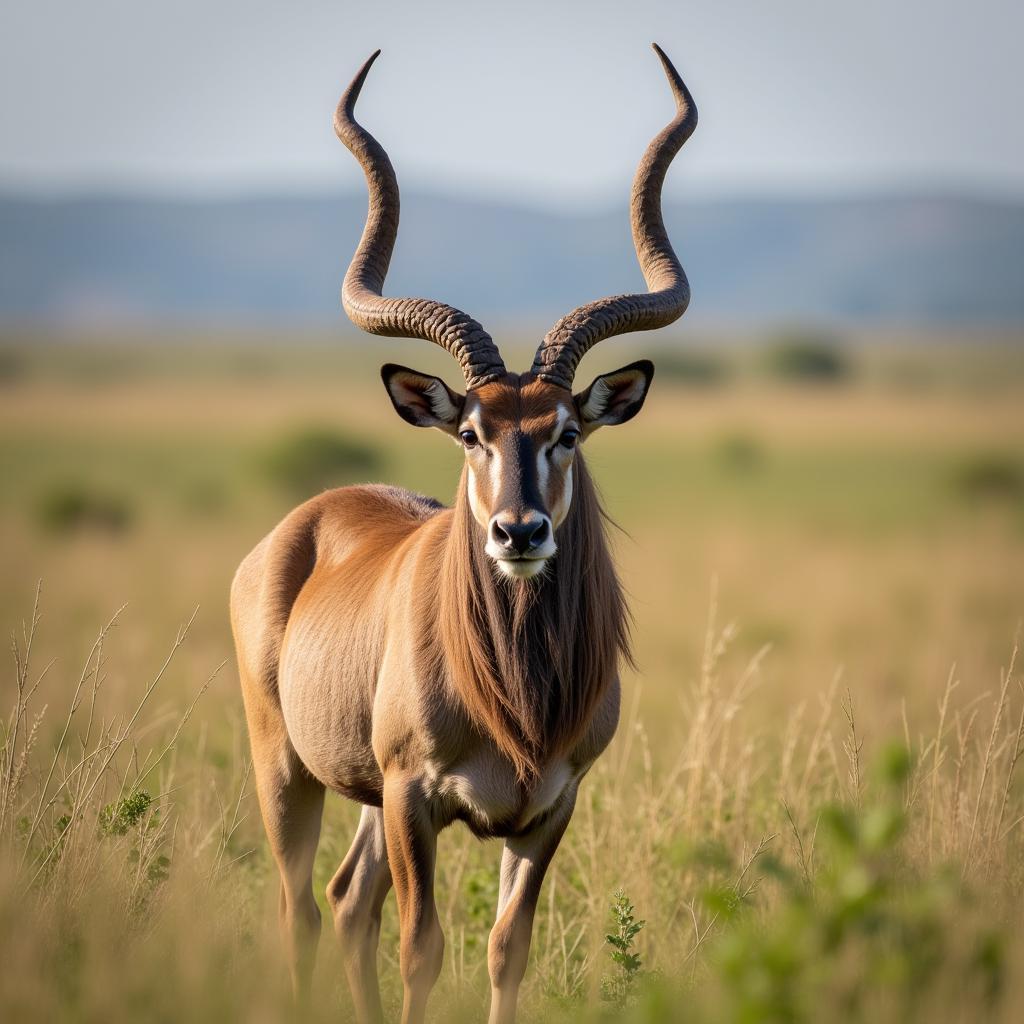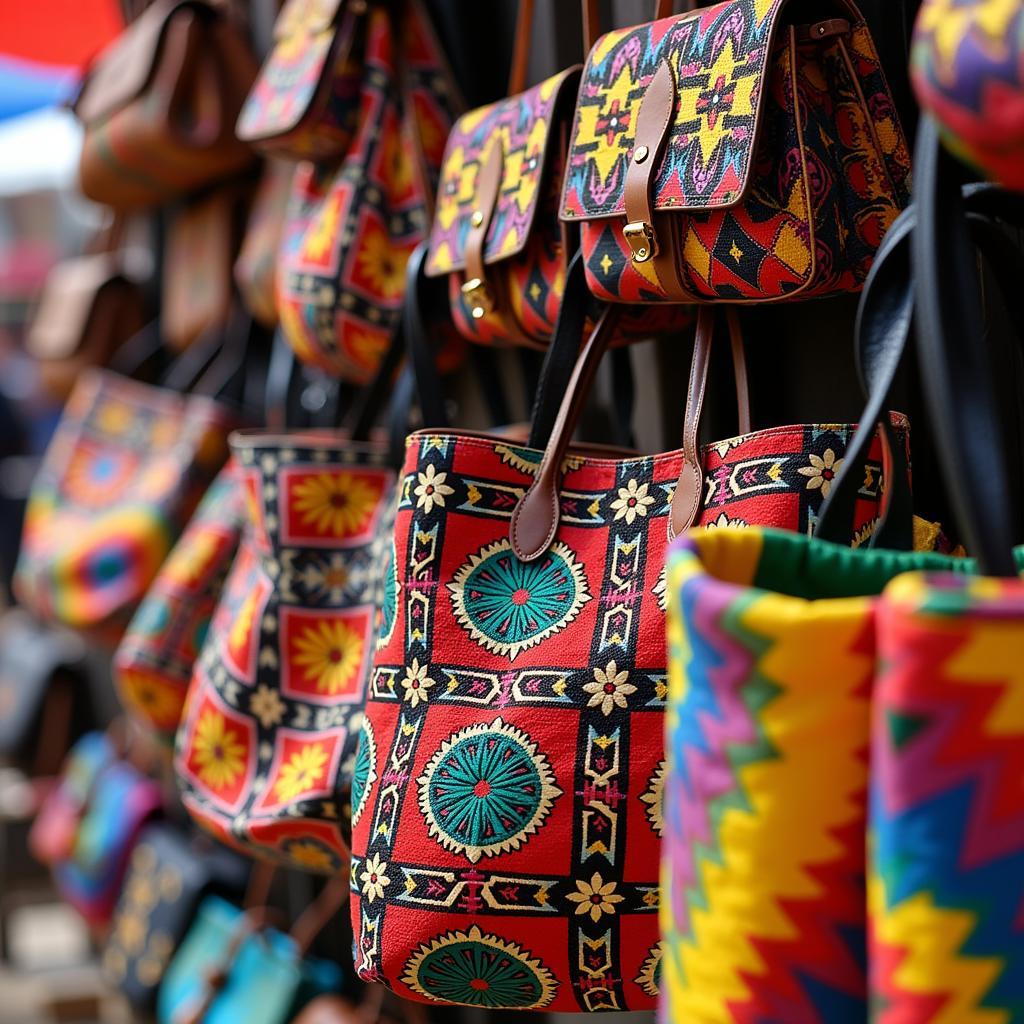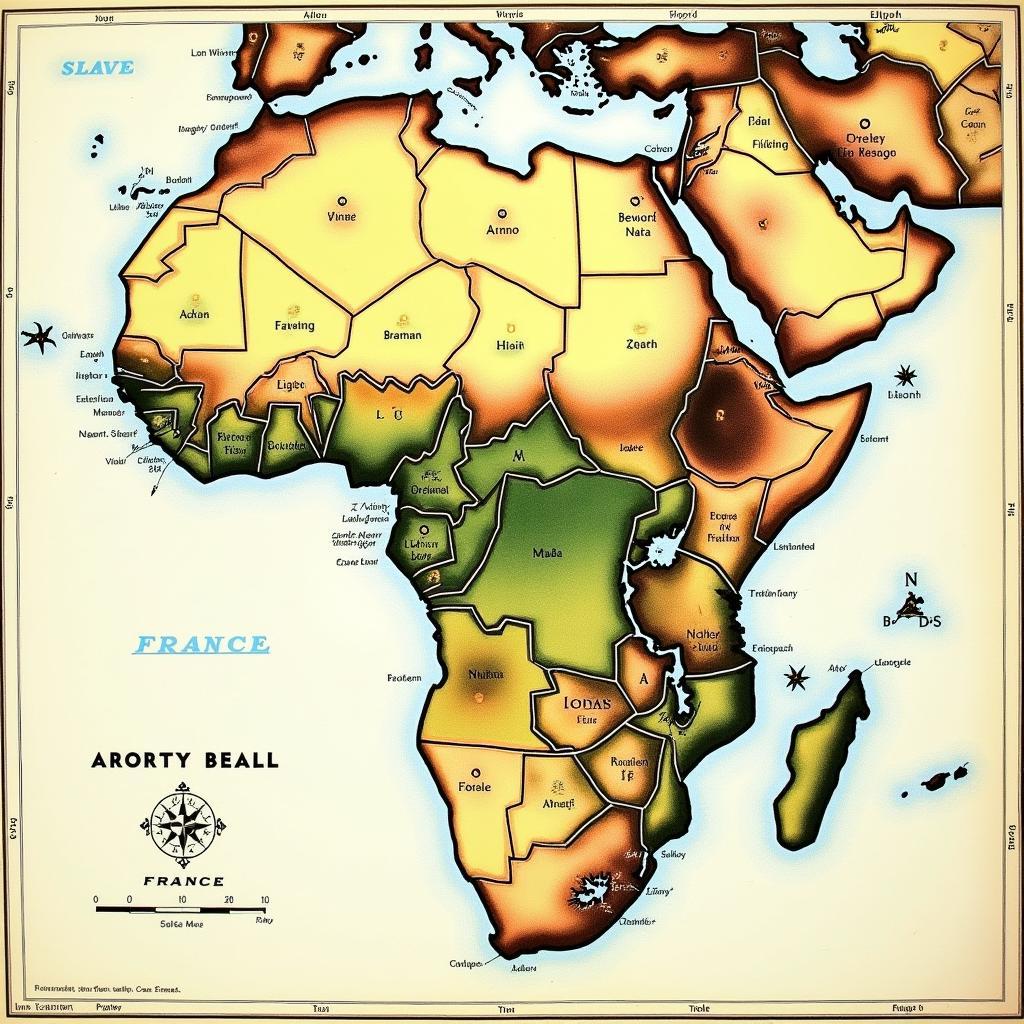Unraveling the Mystery: African Deer with Spiral Horns
Have you ever heard of an African Deer With Spiral Horns? While Africa is renowned for its incredible wildlife, the image of a deer with spiraled horns might seem out of place. This is because the animal you’re picturing isn’t a deer at all, but likely belongs to a fascinating group of antelopes!
The Antelope Family: A Diverse Group with a Twist
Africa is home to a remarkable variety of antelope species, many of which possess uniquely shaped horns. These horns, unlike the antlers of deer, are permanent structures made of bone covered in a keratin sheath. While not technically deer, these majestic creatures are often mistaken as such due to their graceful movements and similar body shapes. Let’s explore some of the most iconic spiral-horned antelopes that call Africa home:
The Eland: A Gentle Giant with Majestic Spirals
The common eland, often dubbed the “Lord of the Plains,” is the largest antelope species. Both males and females boast impressive horns with a gentle spiral, adding to their regal appearance.
The Greater Kudu: A Master of Camouflage with Corkscrew Horns
The greater kudu is famous for its stunning, corkscrew-like horns that can reach lengths of over five feet! These magnificent spirals are primarily found on males and play a vital role in establishing dominance and attracting mates.
 Male Greater Kudu Displaying Its Impressive Corkscrew Horns
Male Greater Kudu Displaying Its Impressive Corkscrew Horns
The Lesser Kudu: Smaller in Size, Equally Striking Spirals
As the name suggests, the lesser kudu is a smaller relative of the greater kudu. However, don’t let their size fool you! Male lesser kudus still possess beautifully spiraled horns, albeit smaller than their larger counterparts.
“The beauty of the lesser kudu’s horns is often overlooked,” says Dr. Amani Jabari, a wildlife biologist specializing in African ungulates. “Their smaller size doesn’t diminish their elegance, and the tight spirals are a testament to the intricate designs found in nature.”
The Sitatunga: A Swamp Specialist with Spiraled Weapons
Found in the dense swamps of Central and Southern Africa, the sitatunga is a unique antelope species adapted for life in waterlogged environments. Their elongated hooves help them navigate the swampy terrain, while the males sport impressive, spiraled horns used for defense and display.
The Nyala: A Study in Sexual Dimorphism
The nyala antelope exemplifies sexual dimorphism, with males and females sporting drastically different appearances. While females are hornless, males possess impressive, spiraled horns that contribute to their striking appearance.
Beyond the Spiral: The Significance of Horns
The spiral horns of these African antelopes are not just aesthetically pleasing; they serve several crucial purposes:
- Defense: The formidable horns provide a powerful weapon against predators.
- Dominance: Males often engage in horn-to-horn combat to establish dominance hierarchies.
- Courtship: Elaborate horns play a significant role in attracting mates and showcasing genetic fitness.
Conservation Efforts: Protecting These Majestic Creatures
While some of these spiral-horned antelope species are relatively abundant, others face threats from habitat loss, poaching, and human-wildlife conflict. Conservation efforts are crucial to ensuring the long-term survival of these magnificent creatures and their vital role in the African ecosystem.
Fascinated by African Wildlife?
Want to learn more about other incredible African animals? Check out these articles:
- African Elephant Endangered Species Facts
- African Congo Rainforest Animals
- African Elephant Fun Facts
Conclusion: Appreciating the African Deer with Spiral Horns
While the phrase “African deer with spiral horns” might be a bit of a misnomer, it opens a window into the fascinating world of African antelopes. These graceful creatures, with their unique and majestic horns, remind us of the incredible biodiversity that graces the African continent. By understanding and appreciating these animals, we can contribute to their conservation and ensure that future generations can marvel at their beauty.
For any inquiries or assistance, feel free to reach out to us at:
Phone Number: +255768904061
Email: kaka.mag@gmail.com
Address: Mbarali DC Mawindi, Kangaga, Tanzania.
Our dedicated customer support team is available 24/7 to assist you.



